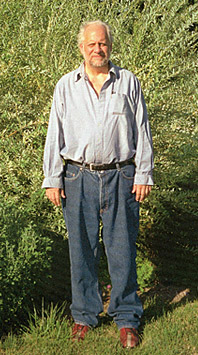Heavyweight Champion
After having the umpteenth business dinner with colleagues, associates, customers or lavish meals with friends, neighbors, family and the dogs, I recalled the story that every child has heard about royalty using feathers to induce vomiting. I think it might’ve been featured in “Ripley’s”. (It’s hard to forget the feather.) The point was that they did this in order to resume stuffing themselves.
We used to be shocked at the decadent, wasteful kings and queens in their gigantic castles tickling their clench reflexes. We’d imagine them belching at large banquet tables piled high with roasts for marathon day and night repasts. “How shameful!”
I have another view. I think they voided their most recent meals, not to repeat the buffet, but to expel their food because they were just sick and tired of eating dinner with yet another lord, squire, duke, visiting nobility and an endless procession of foreign dignitaries. “Oh god, Henry, it’s them again”, the queen gasps, peering through the gate at the approaching string of courtiers. I think the Ripley’s vignette was anti-British propaganda, an urban legend carried over from the 18th century.
Today the guests would be salesmen, consultants, internet providers, robust system analysts, people who explain the meaning of “instance” to you as your gorge rises, manufacturer’s representatives and the like. Back to the dining room—it’s “relationship management” time! Unending series of restaurant meals! Where’s my feather?
No wonder middle class life is in crisis. No longer do we eat normally—we don’t even live normally. This has grave consequences for human health. What we need are more feathers. Plus, we should remember the original impulse behind a social meal. It was to gather and share fellowship. The Last Supper was, after all, just the last of many suppers. The point wasn’t that they ate, but that they did so together, enjoying each other’s company and conversation. No suppers, no apostles, no church.
I believe the weaker the original virtue, the stronger the sin of gluttony. Conversely, the less emphasis on food, per se, the more breathing room for the existence of virtue. “It starts with the reason why”, as a wise man once said. If we sit down together only because we’re hungry, it won’t be long before we have our TV trays before us in the flickering gloom.
I remember back in the early 1980s reading an article in one of the New York magazines that the new trend was actually not eating in a restaurant. Socialites would order a couple of tiny appetizers, or the smallest entrees, and the fashion was that they would hardly start, much less finish. These “minceurs and minceusses” were replaced a decade later by their gym-dwelling cousins, and two decades later by their triathlete sons and daughters. People dining but not eating—a salutary trend, if a bummer for the food industry. I like it—it’s right up there with the feathers.
Finally, I recall one of the first supermodels—I think it was either Twiggy or Verushka—who was asked how she stayed so thin. “I eat lettuce most of the time”, she replied and batted her eyelashes at the reporter, who asked how such a strange (1980s) diet made her feel. “It makes me feel light and airy—it’s the greatest feeling in the world.”
She was talking about eating salad. A girl after my heart.
